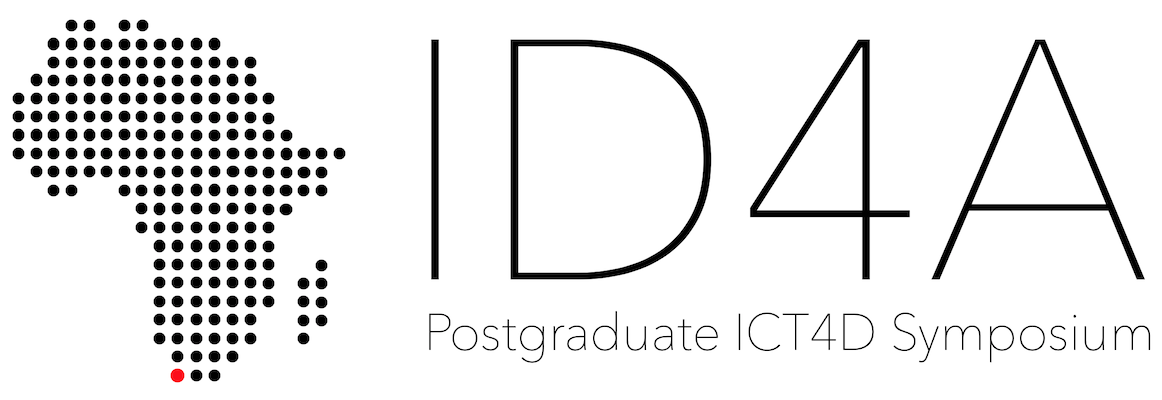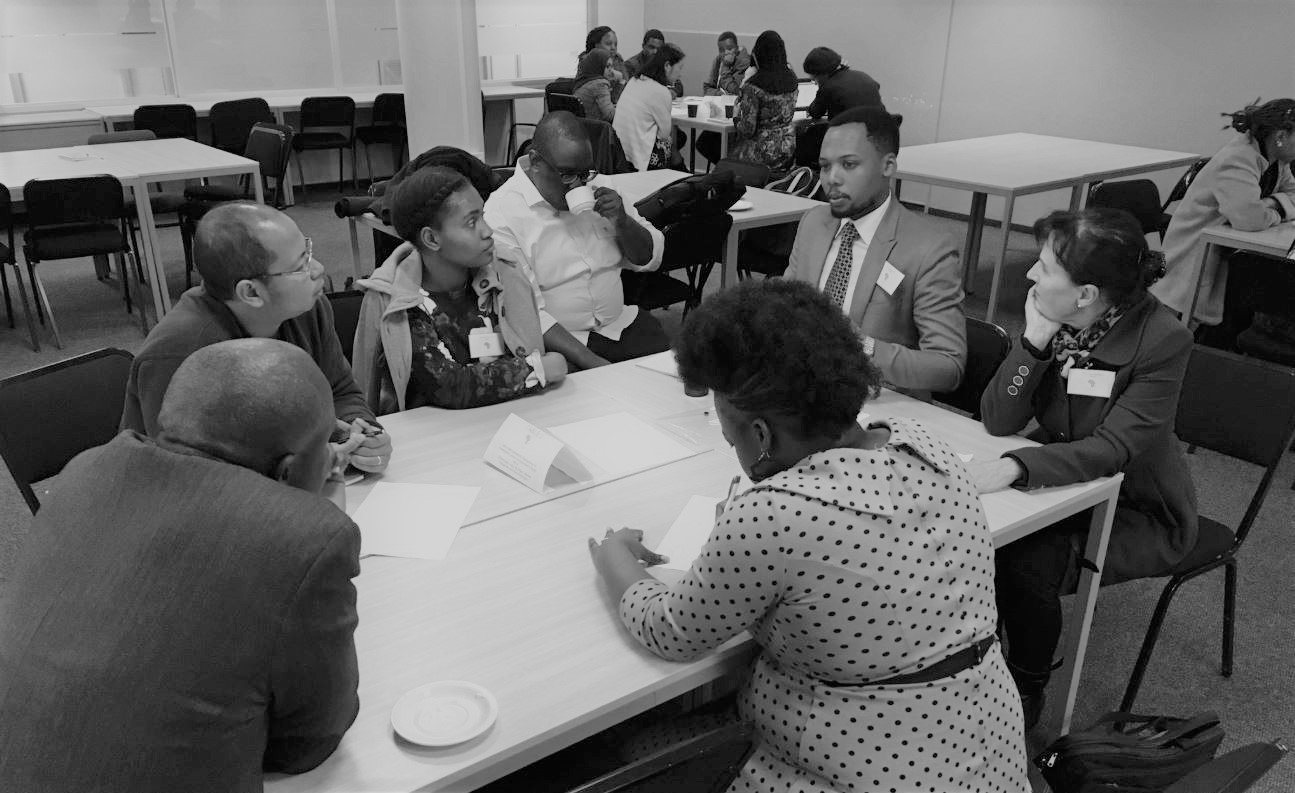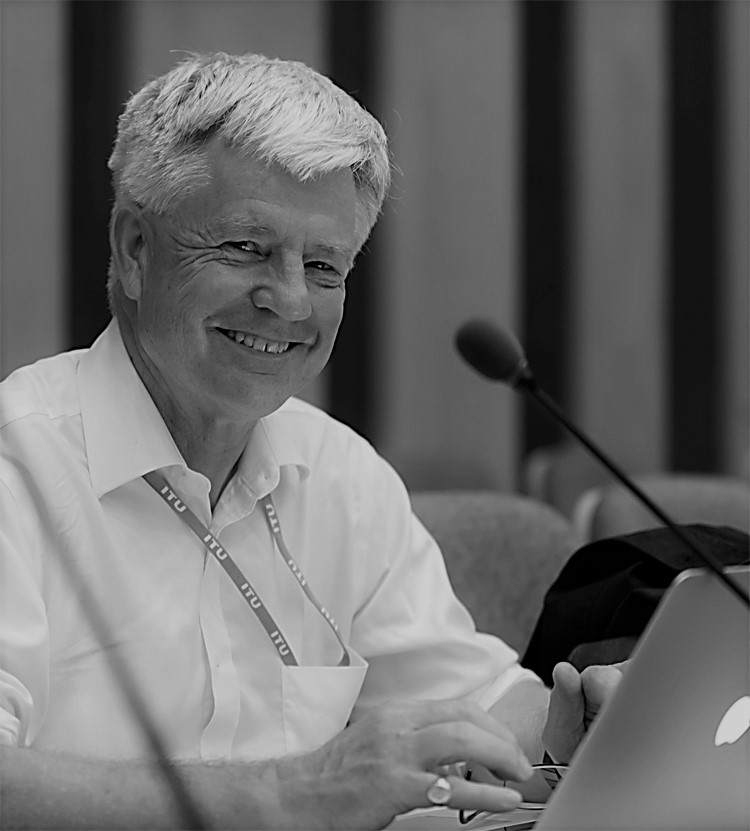#ID4A2019 Reflects on the words of Prof Jan H. Kroeze
“TECHNOLOGY FOR CHANGE”
MESSAGE FROM THE SAICSIT PRESIDENT – JAN KROEZE (UNISA)
During the South African Institute of Computer Scientists and Information Technologists (SAICSIT) Proceedings
26-28 September 2018
Port Elizabeth
About SAICSIT
Mission
The Institute focusses on research and development in computing and information technology (IT) in South Africa.
Strategic objectives
The objectives of SAICSIT are:
- To enhance the communication amongst members and all interested parties regarding research and development projects by means of services and links with other professional bodies;
- To support education and training; To monitor the availability of human resources for research and development;
- To seek solutions to technical and socio-economic problems in South Africa by means of research and development projects;
- To strive for professionalism and excellence amongst members.
13 September 2018
The first South African Computer Symposium on Research in Theory, Software, Hardware was held on 4th and 5th September 1979 in Pretoria. It was organised by The Research Symposium Organising Committtee of The Computer Society of South Africa (CSSA), and the proceedings were published in two issues of Quaestiones Informaticae (QI), volume 1. This symposium was the precursor to the SAICSIT conferences that have been running uninterruptedly for at least 24 years. QI was originally the official journal of the CSSA, but since May 1983 it has been described as “An official publication of the Computer Society of South Africa and of the South African Institute of Computer Scientists [SAICS]”. In January 1990 QI changed its name to South African Computer Journal (SACJ), while SAICS changed to the South African Institute of Computer Scientists and Information Technologists (SAICSIT) in 1993. The 2018 conference, therefore, continues a long and proud tradition of our computing society.
The 2018 conference theme is “Technology for change”. This conference theme should stimulate ideas on the way forward in Computer Science and Information Systems given the current debate on decolonisation and Africanisation in the tertiary sector. It may guide the contributions that our academic disciplines can and should make to enrich the knowledge and practice of Information and Communication Technology from an African perspective. I would like to thank Sue Petratos, Johan van Niekerk, Bertram Haskins and their teams at the Nelson Mandela University for the operational and programme arrangements to facilitate this conference. All of us who have been involved in organising a conference know how much planning and work go into making all of this happen and we appreciate your service to our academic community!
I would like to thank all attendees who have submitted papers. Moreover, congratulations to the successful authors whose papers will be published in the 2018 proceedings that will appear in the ACM Digital Library. With an acceptance rate of 31%, getting a full paper accepted at SAICSIT 2018 is a real achievement – well done!
I would also like to thank our keynote speakers, Moira de Roche and Ulandi Exner, for their presence. Your contributions inform our theoretical reflections from an industry perspective and strengthen our ties with IFIP and the IITPSA. The IITPSA was formerly the CSSA where our society originated in the early eighties of the previous century.
It is a privilege to announce the 2018 SAICSIT Pioneer awardees. Paula Kotzé is well-known in our society and has been a leader not only in SAICSIT but also in the ACM, IFIP and the NRF. She served as president in 2001-2004 and transformed the annual conference of SAICSIT into a conference with an international standing having its proceedings published in the international digital library of the ACM. Jackie Phahlamohlaka has been serving the South African public over the last 37 years in the IT industry, academia, government and research environments. He served, amongst others, as chair of IFIP TC9 and established a workgroup on ICT uses in peace and war. SAICSIT is proud to recognise you for all your hard work and significant contributions over so many years.
Our project to record the history of the society and its conferences has made good progress over the past year. All issues of QI and SACJ that were published between 1979 and 2000 (Issue 25) were scanned in a searchable format and uploaded on the SAICSIT Digital Archive on the Unisa Institutional Repository (available at http://uir.unisa.ac.za/handle/10500/23854). Since 2000 (Issue 26) all issues are available at Sabinet (https://journals.co.za/content/journal/comp) and since 2009 (Volume 44) also on the SACJ website http://sacj.cs.uct.ac.za/index.php/sacj/issue/archive). We therefore now have a complete digital collection of QI and SACJ.
The digitisation of society’s old printed proceedings has also made good progress. The proceedings for 1987, 1991 and 1995-2001 have been scanned and are available on the SAICSIT Digital Archive as well. The proceedings of 1979, 1981, 1983, 1989 and 1992 appeared in QI and SACJ and are also available on the SAICSIT Digital Archive. From 2002 all proceedings are available on the ACM Digital Library. So far, we could not locate copies – if these exist – of the 1993 and 1994 proceedings. If any of our members can assist us in locating any proceedings, we would appreciate it, and please do let us know so that we can continue our search to fill in the last two pieces of the proceedings’ puzzle.
I would like to thank our members for their contributions during our crowd-sourcing project to collect old printed copies of the journals and proceedings that were used for the digitisation project (Ian Sanders, Paula Kotzé, Derrick Kourie, Judith Bishop, Hussein Suleman, and Darelle van Greunen all made copies available). I would also like to thank our colleagues at Sabinet, as well as SAICSIT members and three assistants who helped me with the history project for their invaluable inputs – Thabang Methi, Tebogo Methi, Tendani Mawela, Brenda Scholtz, Patrick Marais, Suezette Opperman, Tawanda Madavo, and Charlotte Hlengwa. I would also like to express our appreciation towards UNISA for hosting the SAICSIT Digital Archive, and especially towards Ansie van der Westhuizen and Filistea Naudé, who played important roles to facilitate the creation of the archive.
I would also like to thank the council members and office bearers for their support over the past year. With your help, we have made significant progress to grow our membership to 475, to update our website, to revise our constitution and continue our collaboration with affiliated and other academic bodies. Judith Bishop, Stella Bvuma and Marc van Kempen worked continuously to update our website, especially the Pioneer Awardees’ webpage, to maintain the membership list and to screen new applications. Pieter Blignaut and Judith Bishop drove the process to revise the constitution and bylaws. This process is ongoing and the council will have to continue working on it in the next year. Our secretary, Hossana Twinomurinzi, was very efficient in planning and managing all our executive committee, council and AGM meetings, and elections. Isaac Osunmakinde, our treasurer, kept a watchful eye on our finances, and I am happy to report that our financial situation is sound. The financial statements have been prepared by Johan Wasserman and will be tabled for approval at the AGM. I would also like to thank Alta van der Merwe and Irwin Brown for your inputs and advice as members of the executive committee over the past two years of my term as president, as well as the council members who liaised with SACNASP, the Gauteng e-Government Department, SACAB, and SABSPlat: Willem Visser, Jason Cohen, Machdel Matthee, Aurona Gerber and André Calitz.
SAICSIT is very proud of its journal, SACJ (formerly QI), that has been running for 39 years since June 1979. In 2018, the editor, Philip Machanick, the production editor, James Dibley, and the editorial team have once again done an excellent job to ensure that articles of high quality appear timely. SACJ is now listed as an accredited journal on the DHET, Scopus and SciELO SA platforms. The whole SAICSIT community appreciates your generous service and all the hours that you sacrificed to facilitate the peer reviews, revisions and publication processes.
No society can exist without members. SAICSIT is its members – both from academia and industry. I thank you all for your loyalty over the past years. I trust that you will enjoy the conference and will return safely to your homes and institutions enriched by the 2018 participation and networking, made possible by our generous hosts at the Nelson Mandela University.



